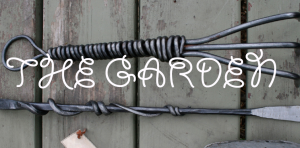“Virtual is the New Real. Pixel is the new Atom. (…) Welcome to deFacebook- the new chapter of human evolution.” – Nandan Ghiya
“The Family Tree 2.0” is the third installment of the deFacebook collection, and is being exhibited at the small but active Paris-Beijing gallery in the city’s third arrondissement.
Using portraits of traditional Indian figures and blurring their faces with exaggerated pixels, Ghiya uses “photographic metaphors from the Indian subcontinent” and disfigures them. “I deface” the artist explains simply. Facebook was wordplay waiting to happen.

Centuries of generations are presented to us through photographs (family, recreational, professional), taken from a collection compiled by Ghiya’s father, an old antique dealer. But here, instead of an arboreal history stretching upwards with each bloodline forming a neuron, connections are severed into digital dimensions. The virtual world decides our timeline for itself, with of course the occasional technical glitch (Ghiya shows us the digital world as fragile) resulting in confused identities and genders. Faces and body parts are mismatched, textures are layered clumsily, angles meet askew.
There are two impressions that struck me in this collection. Firstly, there is something unexpectedly feminine and domestic that comes from the portraits-on-the-wall arrangement. Secondly, there is a progressive feeling of distrust towards the pieces themselves, the artist, and an evolving doubt about what we are ‘expected’ to read. The graphic, angular layout is confusing, with every line is distorted. The poorly-constructed frames are also mismatched and the portraits appear aged and worn. This is not the retouched perfection we demand in our virtual lives. Even the layout of the pieces, where Ghiya has taken the individual portraits and stacked them into one large pixel, is a copy-paste gone wrong. There seems to be nothing digital here in this study on 21st century web-interaction.

Neither is there a narrative to speak of, although perhaps it can be found in the lack of voices. Identities and stories are deleted with deliberately anonymous names, (“Big_Lebowski43” or “Ziggystardust21”) typical of social media networks, stamped over pixelated Indian faces.
Of course there is humour here. It’s hard to be totally serious and dramatic when social networking is your canvas. But it’s not all smiles for this whimsical commentary on the consequences of social media. Something in the loss of tradition, the faces we’ll never see, our ability to remove the past, is piercingly sad, and the titles of the paintings deliberately trivialize the content in an imitation of our own inadvertent treatment of memories and history. In “Download Error” (2012), the pixel cubes recede into the portrait itself, blocks expand backwards into the face of an anonymous woman. The collection gathers dimensions progressively through the gallery, terminating in a piece with portraits forming a cube protruding from the wall. We finish the exhibition feeling violated, explored, copied and used as a mere form.

By recycling images and reanimating photos and paintings, Ghiya does not try to imitate digital techniques but presents them in a deliberately-flawed – and human – medium. The obvious questions and observations we expect from this collection conflict with what we find, and this eventually gives us something far more interesting than a simple critique of our social networking habits.

(The Family Tree 2.0 runs @ Paris-Beijing until October 23rd)
















